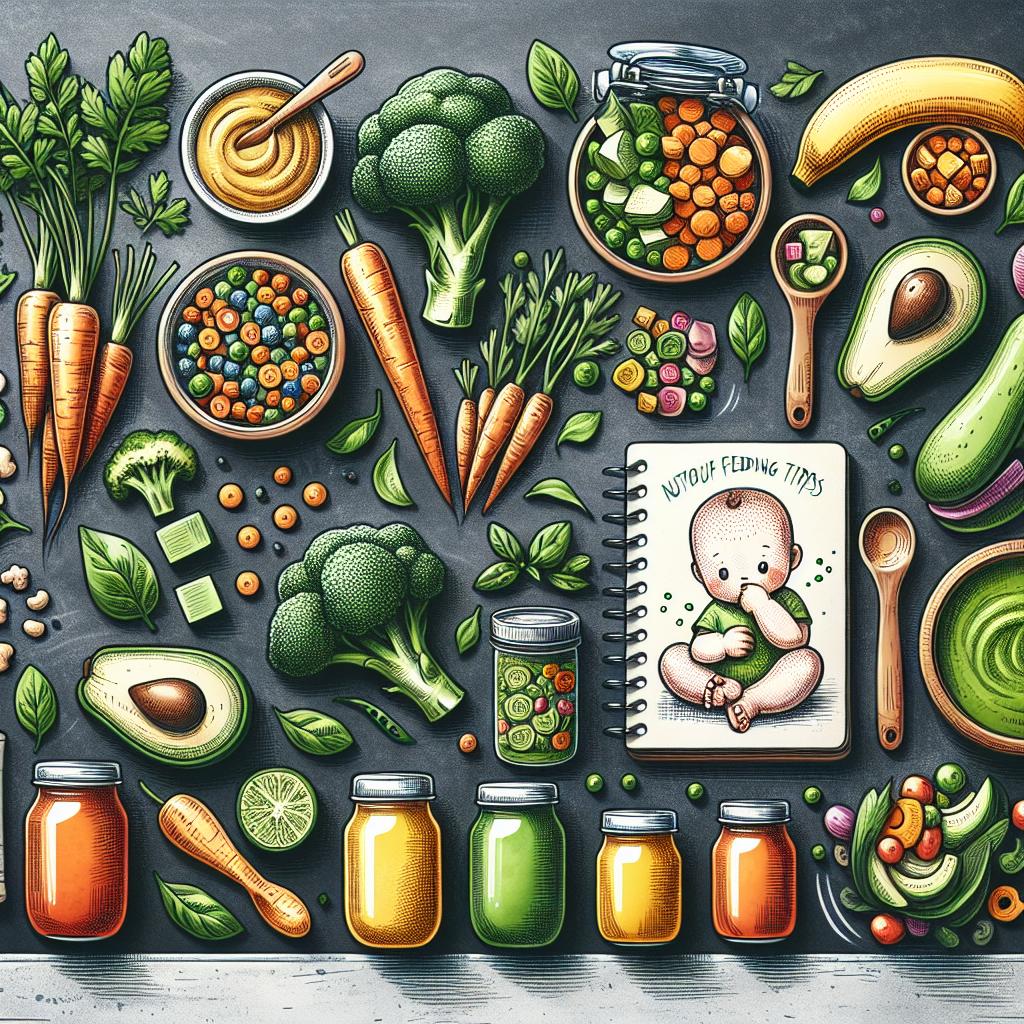Understanding the Importance of Homemade Baby Food Recipes
In the earliest stages of a baby’s life, nutrition plays an unparalleled role in their growth and development. Providing homemade baby meals ensures that your child is receiving the best quality of food while also enabling you to regulate exactly what goes into their meals. Making your baby’s food at home can seem challenging, but with the right baby food recipes and nutritious feeding tips, it becomes an enjoyable process that ensures your child’s health and wellness.
Building a Healthy Foundation with Homemade Baby Meals
Creating homemade baby food is all about making sure your baby gets the necessary nutrients from a variety of healthy foods. The key is using fresh, seasonal produce and high-quality proteins. There are numerous baby food recipes available online that you can tailor according to your baby’s age, nutritional needs, and taste preferences.
These meals are not only delicious but are also packed with essential nutrients. By using homemade recipes, you have the freedom to choose organic and natural ingredients, which are free from preservatives commonly found in store-bought baby food.
Baby Meal Planning: A Crucial Step toward Nutritious Feeding
Meal planning is a beneficial technique that helps you organize and prepare meals ahead of time. This efficient approach helps in ensuring you have nutritious, homemade baby meals ready to serve, without the stress of figuring out what to cook every day.
– Create a week-long meal plan.
– Consider your baby’s favorite foods and nutritional needs.
– Try incorporating a new food item every few days to introduce variety.
– Ensure a balance of proteins, carbohydrates, and fats.
– Include fruits and vegetable purees for added nutrients and fiber.
A carefully thought-out week-long meal plan can be found here, perfect for babies aged 8-12 months.
Creating Your Baby Food Recipes at Home
Preparing homemade baby food may seem intimidating, especially for new parents. However, making the shift from store-bought baby food to homemade is a significant step towards ensuring your baby’s health.
This guide offers useful instructions on how to make your baby food, including safety tips, equipment recommendations, and a step-by-step process.
Remember, the process of introducing your baby to solid foods should be gradual and fun. It’s not just about feeding them but fostering a healthy relationship with food that will last a lifetime.
Transitioning to Homemade Meals as They Grow
As your baby grows and their dietary needs change, it’s important to adjust their meals accordingly. Introducing diverse flavors and textures will help develop their palate and prepare them for adult food.
Here are some tips to ensure the transition to regular meals is smooth and enjoyable for your child.
By implementing these nutritious feeding tips and using baby food recipes, you are providing your baby with a healthy foundation for physical development and a lifelong love for wholesome food.
Benefits of Homemade Baby Meals Over Packaged Foods
Commercially produced baby foods, though convenient, may not be the best choice for your baby’s health and development. The quality of the ingredients is often lower, and they may contain sweeteners or additives.
You might be tempted to go for readymade food options due to the ease and convenience they offer. However, when you prepare your baby’s meals at home, you take control over what goes into their diet. Additionally, homemade baby food is often much more economical than store-bought options.
– High-quality, fresh ingredients without preservatives or additives.
– Full control over the texture of the food based on your baby’s developmental stage.
– The ability to introduce a variety of tastes to your child.
– Cost-effective compared to pre-packaged options.
Here you can explore various options for homemade baby meals that are simple to prepare and packed with nutrition.
Nutrition Guidelines for Infants
Whole, fresh foods that are rich in essential nutrients are vital during your infant’s growth and development phase. However, navigating through nutritional guidelines for infants can be overwhelming. Thankfully, there are comprehensive nutrition standards outlined by recognized authorities.
According to the USDA’s Nutrition Standards, a balanced diet for infants involves certain key components:
– High-energy, nutrient-rich foods to fuel their rapid growth.
– Iron-rich foods, such as vegetables and fortified cereals.
– A good variety of fruits and vegetables.
– Healthy fats, especially those found in fish, nuts, and avocados.
– Adequate vitamins and minerals, particularly vitamin D.
Incorporating Texture into Homemade Baby Food
As your baby grows, they will need to gradually experience different food textures. This step is crucial for their oral motor development and for introducing them to the joy of eating a variety of solid foods.
During this transition, you can begin with purees and gradually introduce mashed, soft foods. Ensure the meal consistency is right for your baby’s developmental stage by following simple meal plans designed for different ages.
Promoting Wholesome Eating Habits from an Early Age
Integrating healthy eating habits from infancy can instill a lifelong appreciation for nutritious food. By offering a variety of whole, healthy foods and avoiding processed snacks, you can help your child form a solid foundation for nutritious eating. These are habits that will aid them in maintaining a healthy lifestyle as they grow.
– Repeated exposure to a variety of tastes can help children be more willing to try new foods.
– Encourage your child to eat colorful fruits and vegetables.
– Teach children about where food comes from to help them appreciate the foods they eat.
– Be a role model and eat healthy yourself.
You can learn more about promoting good eating habits on the MyPlate website which offers age-specific tips and resources.
In conclusion, homemade baby meals offer a fresh, nutrition-packed alternative to store-bought options. Armed with the right information and resources, you can ensure your baby experiences diverse, healthy, and flavorful meals, leading to a lifetime of wholesome eating.
